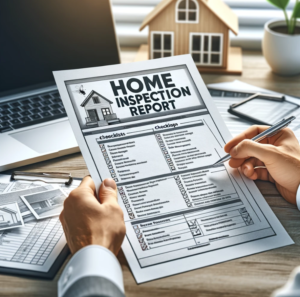There are so many home maintenance and repair items that are important; it can be confusing trying to establish which are the most critical. To simplify things, we have compiled a short list of our favorites. These are by no means all-inclusive, nor do they replace any of the information in a home inspection report. They should, however, help you get started on the right foot. Remember, any items marked as priority or safety issues on your home inspection report need immediate attention.
One-Time Tasks
- Install smoke detectors and carbon monoxide detectors as required, according to manufacturer’s recommendations. Know the requirements in your area.
- Make any electrical improvements recommended in the home inspection report.
- Remove any wood/soil contact to prevent rot and insect damage.
- Change the locks on all doors. Use a dead bolt for better security and to minimize insurance costs.
- Correct trip hazards such as broken or uneven walks and driveways, loose or torn carpet or uneven flooring.
- Correct unsafe stairways and landings. (Railings missing, loose, too low, et cetera.)
- Have all chimneys inspected before operating any of these appliances.
- Locate and mark the shut-offs for the heating, electrical and plumbing systems.
- Label the circuits in electrical panels.
- If there is a septic system, have the tank pumped and inspected. If the house is on a private water supply (well), set up a regular testing procedure for checking water quality.
Regular Maintenance Items
- Clean the gutters in the spring and fall.
- Check for damaged roofing and flashing materials twice a year.
- Cut back trees and shrubs from the house walls, roof and air conditioning system as needed.
- Clean the tracks on horizontal sliding windows annually, and ensure the drain holes are clear.
- Test ground fault circuit interrupters, carbon monoxide detectors and smoke detectors using the test button, monthly.
- Service furnace or boiler yearly.
- Check furnace filters, humidifiers and electronic air cleaners monthly.
- Check the bathtub and shower caulking monthly and improve promptly as needed.
- If you are in a climate where freezing occurs, shut off outdoor water faucets in the fall.
- Check reversing mechanism on garage door opener monthly.
- Check attics for evidence of leaks and condensation and make sure vents are not obstructed, at least twice a year. (Provide access into all attics and crawl spaces.)
Line drawings are from the Carson Dunlop Home Inspection Training Program and Home Inspection Software Tool – Horizon




